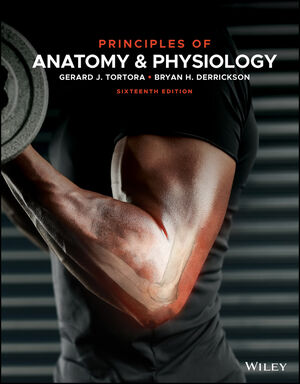

The twelfth edition continues to offer a balanced presentation of content under the umbrella of one unifying theme, homeostasis. Student feedback has also been used extensively in further improving the text. In response to feedback from teachers and students, the illustrations within the text are of an even better standard than previous editions, with the re-development of many of the images depicting the topics that are toughest for students to grasp. Volume one focuses on organization, support and movement, and control systems while volume two embraces maintenance and continuity of the body. This international student edition is published in an easily portable two-volume set – a welcome change, since students have commented on the weight of earlier editions. It emphasizes the correlation between normal physiology and pathophysiology, normal anatomy and pathology, and homeostasis and homeostatic imbalances. Nationally, he is a member of the Human Anatomy and Physiology Society (HAPS) and the National Association of Biology Teachers (NABT).The twelfth edition of Principles of Anatomy and Physiology by Tortora and Dickinson has maintained the balance between structure and function of the human body characteristic of previous editions. At Valencia, he has served as a member of the Faculty Senate, which is the governing body of the college, and as a member of the Teaching and Learning Academy, which sets the standards for the acquisition of tenure by faculty members. Bryan studied at Duke in the Physiology Division of the Department of Cell Biology, so while his degree is in cell biology, his training focused on physiology. He received his bachelor's degree in biology from Morehouse College and his doctorate in cell biology from Duke University.

Derrickson is Professor of Biology at Valencia Community College in Orlando, Florida, where he teaches human anatomy and physiology as well as general biology and human sexuality.

He is a member of many professional organizations, including the Human Anatomy and Physiology Society (HAPS), the American Society of Microbiology (ASM), American Association for the Advancement of Science (AAAS), National Education Association (NEA), and the Metropolitan Association of College and University Biologists (MACUB). He received his bachelor's degree in biology from Fairleigh Dickinson University and his master's degree in science education from Montclair State College. Tortora is Professor of Biology and former Biology Coordinator at Bergen Community College in Paramus, New Jersey, where he teaches human anatomy and physiology as well as microbiology.


 0 kommentar(er)
0 kommentar(er)
